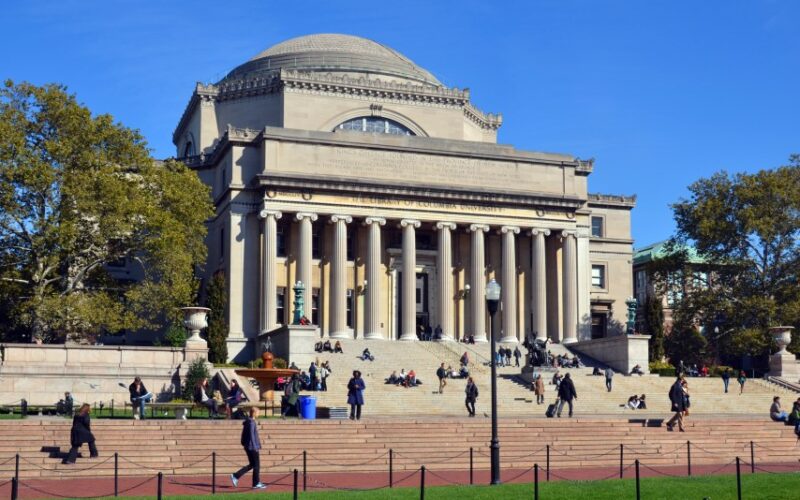The Trump administration has cancelled $400 million in grants to Columbia University for allegedly tolerating antisemitism and is investigating 60 schools for the same. But a wealth of data demonstrates that students at universities are significantly less antisemitic than the wider American population. The antisemitic charge is a slur in its own right, tainting a broad range of institutions with a single hateful brush.
But we’re not rife with racism, either.
That’s what lots of universities said about themselves, back in 2020. And they were every bit as wrong as the Trump administration is now.
In the wake of the George Floyd police murder, dozens of institutions and academic departments issued statements of “self-flagellation,” as Harvard law Prof. Randall Kennedy has observed. They acknowledged their complicity with racism, colonialism, and other forms of oppression. And they pledged to purge themselves of these hateful legacies.
Let’s be clear: many of our leading universities were born in racism and anti-Blackness. At Princeton, for example, the first nine presidents owned slaves. These institutions taught eugenics and other forms of so-called “scientific” racism. And they didn’t accept more than a handful of African-Americans until the 1960s, when civil rights activism forced their hands.
But that’s different from saying that racism is “rampant” on our campuses today, as a letter signed by 350 Princeton professors and graduate students declared in 2020. The letter went on to demand school-wide anti-racist training, the elevation of faculty of color to leadership positions, and the creation of a committee to “oversee the investigation and discipline of racist behaviors, incidents, research, and publication on the part of the faculty.”
Never mind that African-Americans have served as department chairs, deans, and trustees at Princeton, as Kennedy noted. (Kennedy, who is Black, is a former Princeton trustee himself.) And never mind that the university made expensive efforts to recruit African-American faculty and students before the Supreme Court struck down affirmative action in 2023.
The biggest problem with the Princeton letter was the way it ran roughshod over academic freedom. Which kinds of research and publication would be deemed “racist,” and which types of “discipline” would the university exact for it? In a free university, we let people pursue whatever lines of thought they wish. The letter said otherwise, threatening to squelch any inquiry that ran afoul of its dictates.
And so does the Trump administration, of course. In a clever piece of sophistry, it has declared that diversity, equity, and inclusion (DEI) programs violate Title VI, the federal law barring discrimination on campuses. And it has also claimed that universities are breaking that law by failing to protect Jewish students from “relentless antisemitic eruptions,” as a Department of Education letter warned in March.
Like racism, antisemitism was a founding feature of the modern American university. Elite schools established quotas in the early 20th century on the number of Jewish students, which stayed in place until the 1960s. And Jews were excluded from many fraternities and from leadership positions in other campus organizations.
But does that mean that colleges today are experiencing “an unprecedented wave of vile antisemitic discrimination,” as President Trump asserted in an executive order back in January? Hardly. Although campuses witnessed a spike in antisemitic incidents after the Oct. 7, 2023 Hamas attack on Israel, people who attend universities are significantly less prejudiced against Jews than the overall population is.
Indeed, antisemitism is much more common on the far right than it is on our heavily liberal college campuses. And some conservatives complaining about antisemitism at our universities have employed their own antisemitic tropes, including claims that Jewish philanthropist George Soros is part of a shadowy “globalist cabal” that controls financial markets and mass media.
The most endangered people on our campuses right now are international students, who are busily scrubbing their social-media posts lest the Trump administration cancel their visas for saying the wrong thing about Israel and Palestine. But all of us are in peril, if our institutions fail to protect our academic freedom from the catch-all accusation of antisemitism.
So it’s time for our universities to stand up, together, and say: enough is enough. We will not allow the government to bully us with scurrilous charges of bigotry. We erred by calling ourselves racist back in 2020. Let’s not make the same mistake with antisemitism now.
Zimmerman teaches history and education at the University of Pennsylvania. He serves on the advisory board of the Albert Lepage Center for History in the Public Interest.








